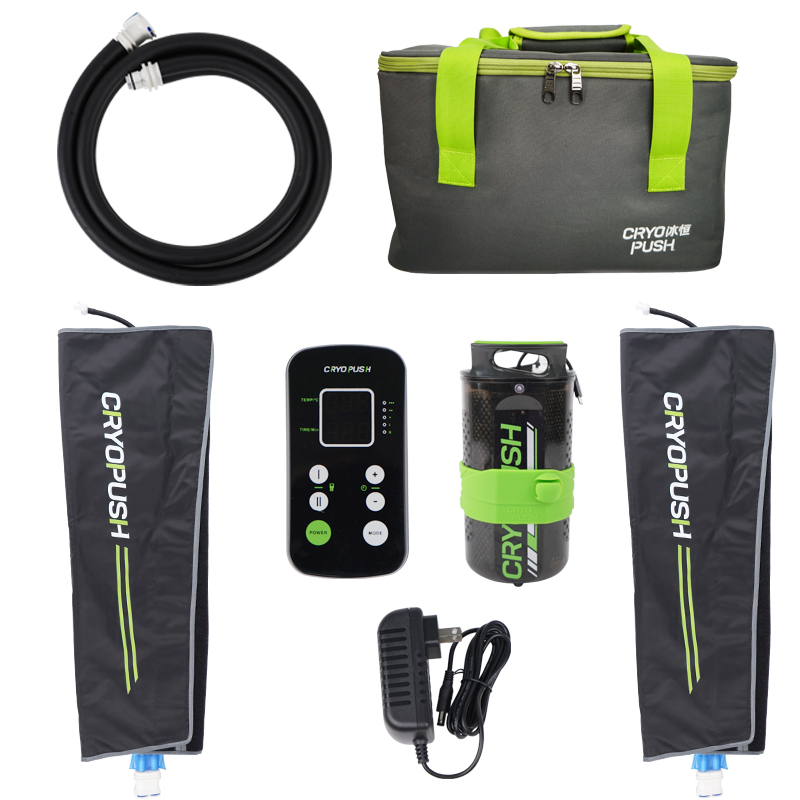An unrelenting heatwave continues to scorch much of the southern US, leaving more than 90 million Americans under a heat advisory.
In Phoenix, temperatures hit 110F (43C) for the 19th straight day, shattering the city's previous record. Ice Therapy Products

Officials said hospitals were using body bags filled with ice to cool down some patients who have overheated.
Temperatures are set to be dangerously high across the US all week.
An oppressive heat dome has settled over much of the US South, sending temperatures soaring from Florida to California.
More than 12,000 record-high temperatures have been recorded in the US so far this year, according to the National Oceanic and Atmospheric Administration (NOAA).
Arizona's largest utility service said customers broke the record for most electricity used at once, as residents blasted air conditioners to escape the heat.
This video can not be played
Watch: Reports from places facing record temperatures
Persistent exposure to extreme heat can lead to heat exhaustion, dizziness, fainting and headaches as blood pressure drops.
In Phoenix, 12 people have died after suffering effects due to the current excessive heat, officials said.
Doctors at the Valleywise Health Medical Center, told CNN the effects of the unrelenting heat were overwhelming the healthcare system.
"The hospital has not been this busy with overflow since a few peaks in the Covid pandemic," emergency room doctor Frank LoVecchio told the outlet.
A hospital official said emergency room doctors are placing patients in body bags filled with ice, in extreme cases, in an attempt to cool them down.
In an interview with the health news outlet, Stat News, emergency physician Dr Geoff Comp, who helped develop the life-saving protocol, said body bags were ideal for treating heat stroke victims because they could cool someone twice as quickly as traditional methods.
Patients are immersed in the ice-filled bags, which are waterproof and have enough room for doctors to perform some procedures, according to Stat News.
In Las Vegas, sweltering temperatures have stunned even veteran emergency responders. Las Vegas paramedic David Schilling estimates calls to emergency services have soared by 40% - largely from tourists who are not yet acclimatised to the city.
People who are visiting often don't realise how far they have to walk in the sun on the Las Vegas Strip, Mr Schilling said.
"It's a very long distance and because people get so enamoured with all the large buildings and spectacles in the lights, they don't realise they're being dehydrated," he said.
In the weeks before the heat dome settled over the state, Las Vegas had been unusually cool. It recorded more than 260 consecutive days below 100F (38C).
But the soaring temperatures returned with a vengeance, with little warning or time for people to acclimatise. "It snuck up on us," Mr Schilling said. "So we've seen people that are feeling dizzy, their hearts are racing, people are passing out people are being really overwhelmed."
Meteorologist Trevor Boucher told BBC News one reason the Las Vegas heat feels so relentless is because there is little respite. Instead of heat escaping during the night, Mr Boucher said the ground continues to reflect the heat it absorbed during the day.
"Temperatures can struggle to fall below 90F (32C) in some cases. And if you don't have access to cooling, then you're stuck in 90 degree temperatures for 24 hours," he said.
And those high temperatures affect the vulnerable the most severely.
Patty and Alan Baker are two of several thousand living in Las Vegas without a home. They spoke to BBC News outside a cooling station and shelter in downtown Las Vegas.
"We're surviving, but we're sweating a lot," Patty said. "You know, we're lucky that we have access to shelter. They have fans in there and we get a mat. So that helps a lot."
"We are senior citizens but you know we hang in there," Alan said.
Heatwaves have become more frequent, more intense, and last longer because of human-induced climate change.
The world has already warmed by about 1.9F (1.1C) since the industrial era began and temperatures will keep rising unless governments around the world make steep cuts to emissions.
This video can not be played
Watch: Heatwave hits homeless people: ‘I cry all the time'
Heatwave hits homeless people: ‘I cry all the time' Video, 00:00:55 Heatwave hits homeless people: ‘I cry all the time'
Country music star suffers heat exhaustion mid-performance
Tourists flock to Death Valley for heat record
He had a call from Israeli intelligence. 'We have the order to bomb. You have two hours'
Ivanka Trump pressed in court on father's real net worth
Ivanka Trump testifies she can't recall loan details
Retracing young boy's escape from Nazi pogroms
How WeWork’s founder flew too close to the Sun
Ivanka Trump is pulled back into her father's orbit
Three takeaways from the off-year US election
Should domestic abusers have guns? US top court will decide
Ethiopia PM eyes Red Sea port, inflaming tensions
Why Spotify is betting big on audiobooks
Playing Prince Harry: wig, accent - and no suntan
Israel-Hamas conflict exposes South Africa's divisions
The employees secretly using ChatGPT
Why aliens may be weirder than we think
Africa's safari trail with no tourists

Cold Compression Wrap Pro © 2023 BBC. The BBC is not responsible for the content of external sites. Read about our approach to external linking.